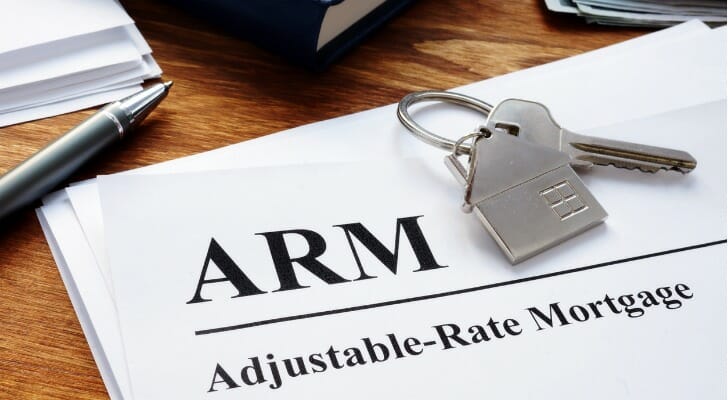

A reverse mortgage is a federally insured loan that provides homeowners with monthly cash payments based on the amount of equity they’ve built up in the property. While this can be a great tool for retirees who want an additional stream of income, it can spell trouble for whoever inherits the property after the death of the original owner.
Even though a reverse mortgage is a loan you’re taking on, you’re not required to repay it as long as you’re using the home as your primary residence. The only time that repayment in full is required is if you move out, sell the property in order to buy a new house or pass away leaving no surviving co-signer. If you’re married and your spouse still lives in the home, repayment can be deferred until their death.
So what does this mean for someone who inherits a home with a reverse mortgage? Essentially, the beneficiary would be on the hook for the full loan balance. It wouldn’t matter if they planned to live in the home or not. The lender would still expect them to pay off the reverse mortgage and any interest that’s capitalized over the life of the loan term.
When you’re left with a reverse mortgage obligation after a parent or loved one dies, you have four ways to deal with it. Here’s a breakdown of each:
You can put the home on the market to pay off the loan. If the property’s value is higher than the loan balance, you’d get to use whatever is left over for other expenses. When the loan exceeds the home’s equity value, you’d only be responsible for paying what the house is actually worth.

You can also pay off the loan so you can hang on to the home. Unless you inherited a large sum of cash along with the house, you’ll most likely have to finance the loan’s repayment.
In this scenario, you’d have to meet certain lending requirements as far as your credit, income and debts go to qualify for a new mortgage. That makes it all the more important to continually check your credit report and keep your finances in order.
A third option is to deed the property back to the lender. This is basically a way to avoid foreclosure. The lender becomes the owner of the property and heirs don’t bear any further financial responsibility for the home.
There are some advantages to giving the property back compared to the fourth option, which is simply walking away from the home altogether. If the lender forecloses and the home is sold at auction, the homeowner’s estate could still be held liable for the repayment of the loan debt.
If you find yourself holding the bag for a reverse mortgage, it’s important to remember that you have certain rights. For example, anytime a homeowner dies with a reverse mortgage in place, the lender must formally notify the heirs that the loan is due. Beneficiaries are given 30 days to figure out their next steps.
Once you’ve decided to sell or pay off the loan, you’ll have an additional six months to complete the transaction. In some instances, you may be able to get a six-month extension to finalize the deal. Being aware of the rules that are in place can keep you from making poor decisions when trying to resolve the issue with your reverse mortgage.
Whenever you inherit a major sum of money or property, it can be difficult to know how to manage things. This is especially true if the asset you’re inheriting has something as massive as a reverse mortgage still attached to it. However, with some education and smart decision-making, you’ll be able to take care of the situation in a way that’s best for you and your family.

Photo credit: ©iStock.com/marchmeena29, ©iStock.com/William_Potter, ©iStock.com/Nattakorn Maneerat
Rebecca Lake, CEPF®Rebecca Lake is a retirement, investing and estate planning expert who has been writing about personal finance for a decade. Her expertise in the finance niche also extends to home buying, credit cards, banking and small business. She's worked directly with several major financial and insurance brands, including Citibank, Discover and AIG and her writing has appeared online at U.S. News and World Report, CreditCards.com and Investopedia. Rebecca is a graduate of the University of South Carolina and she also attended Charleston Southern University as a graduate student. Originally from central Virginia, she now lives on the North Carolina coast along with her two children. Rebecca also holds the Certified Educator in Personal Finance (CEPF®) designation.
Read More About Mortgage



More from SmartAsset
SmartAsset Advisors, LLC ("SmartAsset"), a wholly owned subsidiary of Financial Insight Technology, is registered with the U.S. Securities and Exchange Commission as an investment adviser. SmartAsset's services are limited to referring users to third party advisers registered or chartered as fiduciaries ("Adviser(s)") with a regulatory body in the United States that have elected to participate in our matching platform based on information gathered from users through our online questionnaire. SmartAsset receives compensation from Advisers for our services. SmartAsset does not review the ongoing performance of any Adviser, participate in the management of any user's account by an Adviser or provide advice regarding specific investments.
We do not manage client funds or hold custody of assets, we help users connect with relevant financial advisors.
This is not an offer to buy or sell any security or interest. All investing involves risk, including loss of principal. Working with an adviser may come with potential downsides such as payment of fees (which will reduce returns). There are no guarantees that working with an adviser will yield positive returns. The existence of a fiduciary duty does not prevent the rise of potential conflicts of interest.